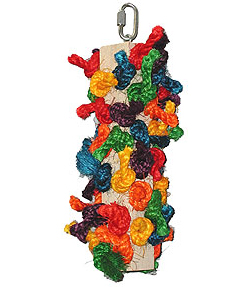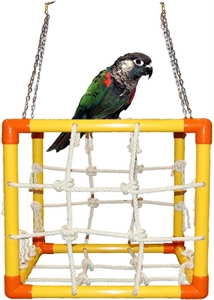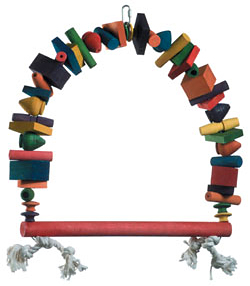Categories
- 10 Dollars and Under
- 5 Dollars and Under
- Avian Wear (Human and Feathered)
- Avitech
- AVIX Products
- Bees Wax Candles
- Bird Beds
- BIRDCARE Company Supplements
- Birdie Breads / Cookies
- Birdie Mashes
- Books / DVDs / Clickers
- Cage Accessories and Liners
- Cages
- Christmas Ideas
- Dishes, Bottles, Skewers
- Egg Food, Cuttle / Mineral
- Gift / Personal Items
- Gift Certificates
- Goldenfeast Gourmet Blends
- Hand Rearing / Nesting Supplies
- Harnesses / Travel Carriers
- Health / Wellness / Grooming
- Lighting / Lamps
- Lory Diets
- Molly's Bird Toys
- Nutritional
- Organic / Sprouters
- Parrot Greeting Cards
- Pellets
- Perches & Swings
- Perches FLAGSTONE
- Pest Control, Disinfectant Clean
- Pet Memorial
- Play Stands, Trees, Hanging Gym
- Poultry
- Ribbons &Bows, Doggies & Critter
- Seeds
- Snacks & Treats
- Toy Parts
- Toys
- Toys For the Feet
- Twin Beaks
- Window Decals
- Wingdow Seats
- Featured Products ...
- All Products ...
Manufacturers
Information
More Information
Amino Acids
|
||
|
Proteins, which are comprised of amino acids, are used by the parrot to grow and repair muscle, organs, feathers, beak and other body tissue. Amino acids, which are often called the building blocks of protein are divided into two groups. Non-essential amino acids which can be manufactured by the parrot's own body. Include serine, taurine, tyrosine, glutamic acid, cystine, aspartic acid, glutamic acid and glycine. Essential amino acids which must be supplied, as the parrot's body cannot manufacture them. These are arginine, lysine, methionine, trptophan, hisitidine, isoleucine, leucine, phenylalaine, threonine and valine. Protein contained in foods is categorized as either "complete" protein or "incomplete protein" depending on whether the food contains all of the amino acids or only some of them. Corn, as an example, is an incomplete protein. While it does contain protein, it lacks many of the essential amino acids, thus is considered a poor source. Incomplete proteins maybe combined with others to form more complete proteins, example rice and beans. Carbohydrates Are the main source of energy and heat. Most carbohydrates are plant products and are either sugars or starches. Extra carbohydrates are changed into fat and stored in the tissues. Birds do not usually suffer from a deficiency of carbohydrates. Fats Small amounts are needed in parrot diets. They also provide energy and heat. They act as carries for fat soluble vitamins, fatty acids and minerals. Fat is needed to keep the skin soft and help to keep the feathers in good condition. The three essential are linoleic, linolenic and arachidonic. Found in safflower seeds, sunflower seed, flax, should only be fed in limiting amounts.
|
||
Important Links
- A Bit About Us
- A Guide to the Selection of Safe Toys for your Bird(s)
- Amino Acids
- Common Problems that can Happen with Baby Chicks
- Birdcare Simple System
- Fruits
- Giardia
- Goldenfeast Gourmet Blends Ingredients Listing
- Guardian Angel
- Minerals
- Nuts
- Substances Toxic to Our Birds
- The Basic Nutrients
- Toxic and Non Tox Plants Shrubs Trees
- US to Metric Conversions
- Vegetables
- Vitamins
- Volkmans Label Ingredients
- Flight Suit Sizing Chart




